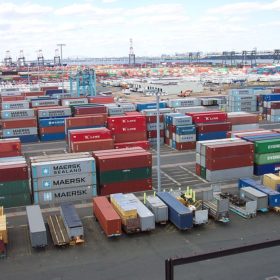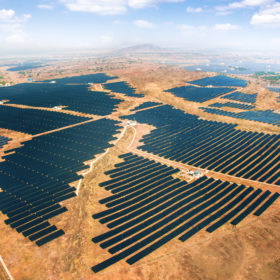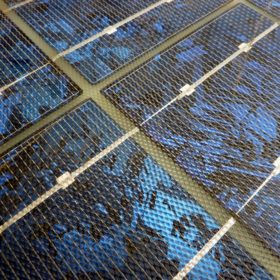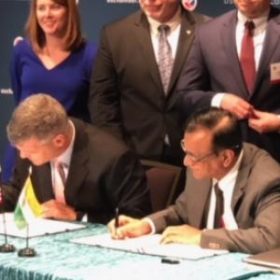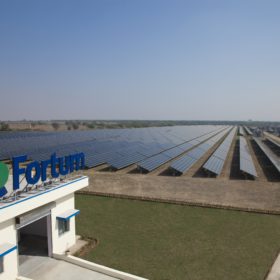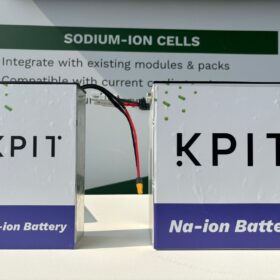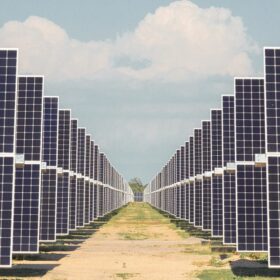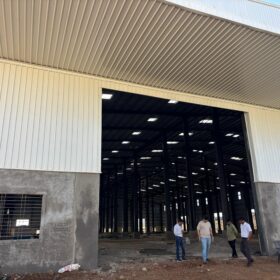Few winners as India imposes 25% safeguard duty, says IHS Markit
The tariff means PV projects will pause as developers adjust procurement strategies and new tenders risk delays or cancellation. The two-year limit on the duty will not be long enough to prompt more cell manufacturing capacity and as for imports, there are doubts over how the origin of cells will be adjudicated so that Chinese and Malaysian cells are subject to the charge, say analysts.
India well on track for 100 GW target, claims minister
Narendra Modi’s Minister for New and Renewable Energy has waved aside complaints about safeguarding duties by telling India’s upper house the nation’s ambitious four-year solar target is ‘comfortably’ within reach.
Gujarat leads in approved solar park capacity
With an approved solar park capacity of 6,200 MW, Gujarat tops the list of solar parks approved under the Solar Park Scheme of India’s Ministry of New & Renewable Energy (MNRE).
SECI launches 750 MW Rajasthan tender
With a maximum fixed tariff of $0.0427/kWh under a 25-year PPA, the total capacity available is made up of 10 MW multiples and could potentially all go to one bidder.
Amplus to set up 400 MW solar capacity in Uttar Pradesh
Encouraged by the state’s investor-friendly solar policy, distributed power producer Amplus Energy Solutions will install 400 MW of solar capacity for R20 billion over three years. In the first phase, Amplus will develop a 50 MW ground-mounted project in Mirzapur district.
Even with duties, Chinese PV modules will be competitive in India
Despite safeguard tariffs against certain imports of solar PV products into India, Chinese manufactured modules will remain competitive, says TrendForce. It further anticipates PV demand falling 30% in fiscal year 2018 in India, while cost pressures will mount for EPCs and project developers.
USTDA signs MoU for 41 MW hybrid storage project
The U.S. Trade and Development Agency (USTDA) has approved a grant supporting the technical design and project planning work for IL&FS Energy Development Company Limited’s (IEDCL) 41 MW hybrid wind, solar and energy storage power plant in Andhra Pradesh.
Quality issues in Indian PV projects jeopardizing investments – report
Inspectors from solar risk management company PI Berlin visited six projects and exposed cost-cutting in installation, non-existent warranties, serious safety concerns and improbable performance figures.
India: Karnataka tops in renewables capacity, may double it in a decade
Owing to a rapid scaling up of solar capacity, Karnataka has overtaken Tamil Nadu to become India’s top state in terms of installed renewable energy capacity. The state installed 5 GW of new PV capacity in 2017-18 alone—according to a report by the US-based Institute for Energy Economics and Financial Analysis (IEEFA).
Uttar Pradesh cancels 1 GW projects due to high tariff
Citing high tariff of INR 3.48 ($0.050)/kWh as untenable, the Uttar Pradesh New and Renewable Energy Development Agency (UPNEDA) has cancelled the recent auction for the development of 1 GW grid-connected solar PV projects across the state.
